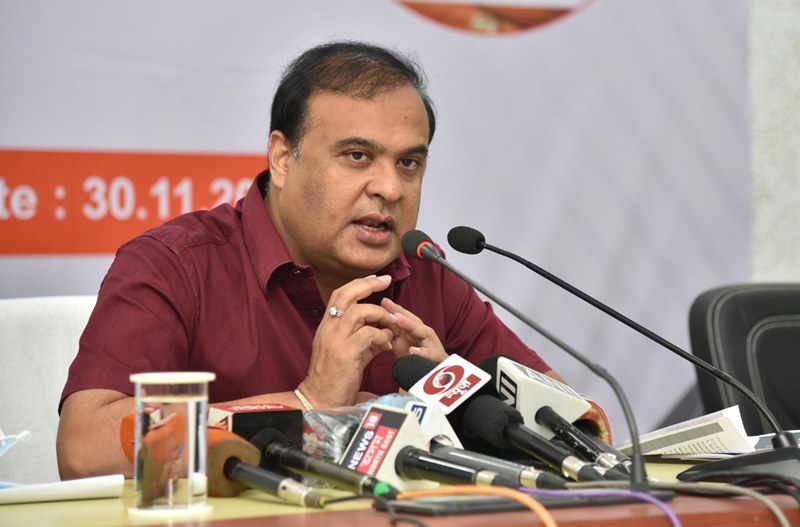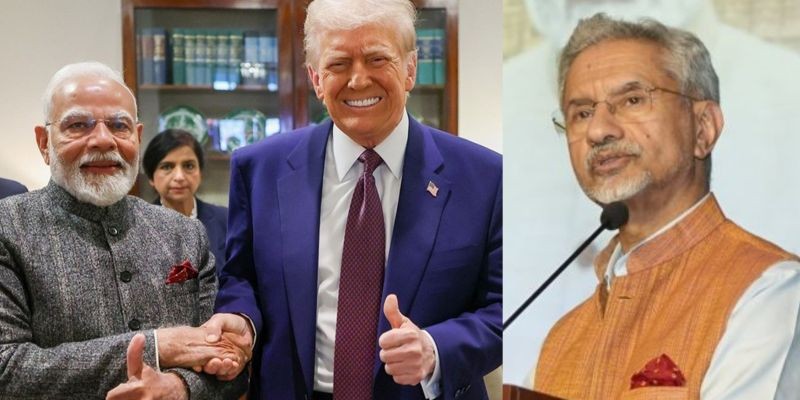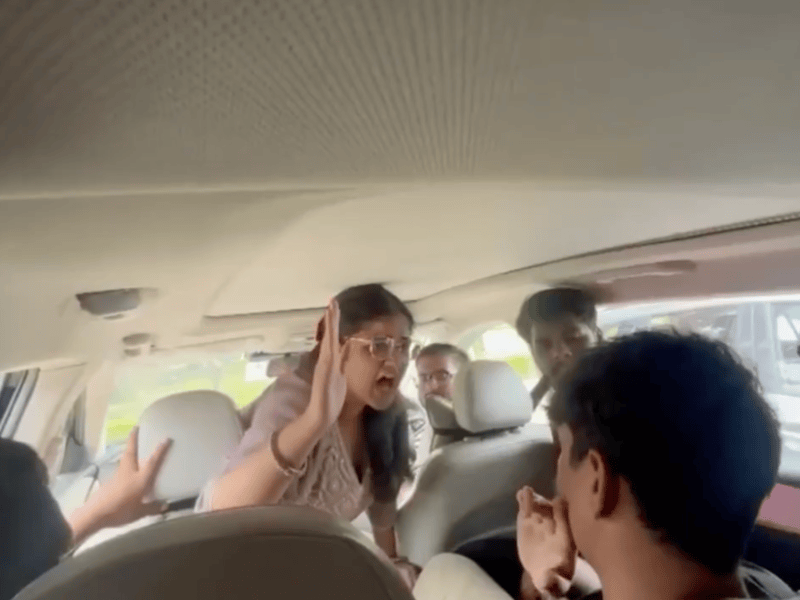Rahul Gandhi hit by his own karma: Assam CM Himanta Biswa Sarma

Guwahati/IBNS: Assam Chief Minister Himanta Biswa Sarma on Saturday said Congress leader Rahul Gandhi became the victim of his own act as back in 2013 his party withdrew the ordinance to prevent the immediate disqualification of lawmakers after conviction following his criticism. He further added that Rahul should have apologised immediately after defaming a community but even after five years, he remains unrepentant.
With his comments, Rahul "intentionally abused the Other Backward Classes (OBC) community" of the country, Sarma said.
"I am a believer of Hindu philosophy, which says that 'Karma strikes you back'. Karma has hit Rahul Gandhi back because in 2013, he rejected the ordinance. Now, he can continue to do Bharat Jodo but can't go to Parliament," Sarma was quoted as saying by NDTV.
He maintained that Rahul Gandhi should have apologised to the OBC community immediately after the election speech in Karnataka, where he made the infamous remark.
The Congress leader, however, behaved otherwise, which shows the arrogance of a leader, he stated.
Today, Rahul Gandhi said once again that he would not apologise for his remarks in London and the defamation trial in which he was convicted as his "name is not Savarkar."
“Mistakes can happen with everyone. Sometimes, due to a slip of the tongue we make mistakes but we immediately apologize. Now, after a prolonged judiciary process of five years he has been held guilty," the Chief Minister said.
While Rahul Gandhi can challenge the ruling, but "if a whole community was dragged then it's obvious that he has to face their wrath," he said.
Gandhi was on Thursday convicted in a defamation case by a court in Gujarat and sentenced to two years imprisonment. He, however, immediately got a bail.
While he has held a press conference on the matter, the leading face of the Congress party is yet to appeal the verdict in a higher court.
The case cropped from his remarks during an election speech in 2019. "How come all thieves have Modi as the common surname," he had said in Karnataka's Kolar, triggering multiple defamation cases against him in various states.
The law that caused Rahul Gandhi’s disqualification
According to the Representation of the People Act 1951, Members of Parliament, Members of the Legislative Assembly and Members of the Legislative Council will forfeit their seats if they receive a jail sentence of at least two years. In such cases, they will also be disqualified from voting for a duration of six years, which means they will not be eligible to participate in any elections during this period.
Previously, the lawmakers, who were convicted, could retain their seats until they had exhausted all their legal options in district courts, high courts and the Supreme Court.
However, the Supreme Court bench of Justices AK Patnaik and SJ Mukhopadhaya ruled on July 10, 2013, ruled that Section 8(4) of the Representation of the People Act was unconstitutional. This section had given elected representatives a period of three months to appeal their conviction.
At the time, Congress ally Lalu Yadav of the RJD was about to be convicted in the fodder scam case. This was his first conviction.
In order to protect Lalu Yadav, the UPA government led by Prime Minister Manmohan Singh tried to reverse the Supreme Court's decision by introducing the Representation of the People (Second Amendment and Validation) Bill in 2013.
Law Minister Kapil Sibal introduced it in the Rajya Sabha on August 30. The amendment proposed that people's representatives would not be disqualified immediately after conviction. It provided that the MPs, MLAs and the MLCs will not be disqualified immediately after conviction.
The Supreme Court dismissed also dismissed a review petition filed by the UPA government on the judgment.
After Lalu Yadav’s conviction in fodder scam, the Congress-led government on September 24 tried to bring the bill into effect as an Ordinance.
However, it met the most unexpected opposition from then Congress vice-president Rahul Gandhi himself. At a press conference in Delhi, he called the Ordinance “complete nonsense that should be torn up and thrown away” he said that was his personal opinion. He did that when Prime Minister Manmohan Singh was abroad.
Congress took Rahul Gandhi's personal opinion seriously, and days after the Manmohan Singh government withdrew both the Ordinance and the Bill.
Later in October 2013, Lalu Yadav, then a Lok Sabha MP, was disqualified and banned from contesting elections for 11 years, which included five years of his imprisonment and an additional six years under the Representation of the People Act after his release. Subsequently, Lalu Yadav faced convictions in further cases related to the fodder scam, which effectively ended his political career.




